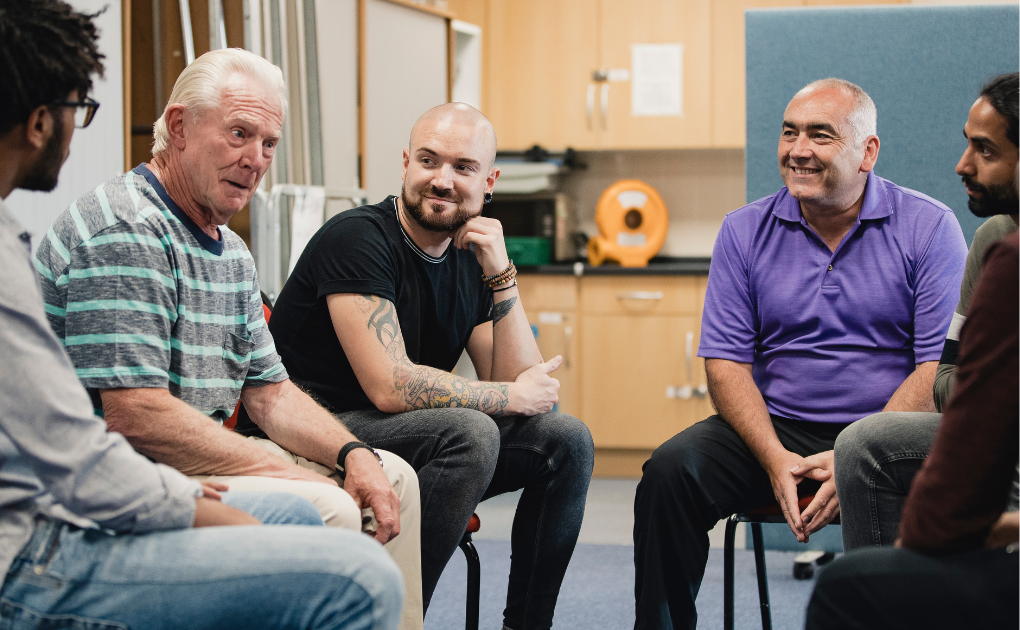Peer recovery specialists are at the forefront of re-entry support, offering justice-involved individuals the empathy, guidance, and tools they need to navigate the challenging transition back into society.
The abrupt culture shift, combined with emotional and social barriers, often hinders successful reintegration, but peer professionals are proving to be game-changers in bridging the gap between incarceration and community re-entry.
The Challenge: Connecting With Justice-Involved Individuals
Engaging with individuals in the criminal justice system, especially those mandated to participate in re-entry programs—remains a significant challenge. Mandated clients often distrust authority figures, making it difficult to establish trust and meaningful connections.
Re-entry is an emotionally taxing period.
During incarceration, there is a certain persona that must be adopted to survive incarceration. Hypervigilance, an aggressive or submission stance, and the ability to shut down emotions. On several occasions, clients told me they didn’t want letters, phone calls, or visits because they made it too hard to live during incarceration.
When these individuals return home, their families are often unprepared for the change. They expected them to walk back in the door the same person who left. They don’t understand why their loved one always sits with their back to the door, can’t sleep with someone else (or can’t sleep at all), jumps out of their skin at any loud noise, or doesn’t like leaving the house.
These misunderstandings can create a rift during an already precarious time.
Why Traditional Solutions Fall Short
Approaches in criminal justice settings that include punitive measures often lack the empathy and person-centered care needed to foster long-term success. Many justice-involved individuals struggle to visualize a future beyond their current challenges.
Re-entry comes with many other stressors. The pull to return to the lifestyle is very strong, and family members who depend upon the income sometimes support it. I remember more than one person saying to me:
“When I am out, I put money away to cover the time when I am incarcerated. I know it’s coming, so I plan for it. This is my life. It is my job to take care of my family. Who will do it if I don’t?”
As a provider, I can help this person look at both sides of this dilemma, but why would they listen to me? I can point out the long-term math and point out how slow and steady actually leads to more money, but in their lives, making enough money to pay the bills and buy sneakers, designer purses, and new phones is their reality.
A hard truth? Many don’t see themselves surviving past the age of 30. Many are surprised they have lived as long as they have. So, long-term math and future thinking are meaningless to them.
Instead, a short-term survival mindset is a reality for many.
While providers can present long-term solutions, individuals often dismiss them as unrealistic within the scope of their lives. Without meaningful support, these stressors can lead individuals to fall back into harmful patterns.
Peer Recovery Specialists: A Bridge to Success
Certified peer recovery specialists bring unparalleled value through their lived experiences. Having navigated similar challenges, they create authentic connections with justice-involved individuals, offering both emotional support and practical guidance.
Peers normalize the struggles of re-entry, help individuals navigate complex systems, and prepare families for the transitions ahead. For example, a peer might meet with someone prior to release to create a re-entry plan, stay connected during the transition, or help families understand the challenges of welcoming a loved one home.
Programs like California’s peer-led support to aid rehabilitation demonstrate how equipping individuals with skills and certifications before release prepares them for impactful roles in the community. This growing field is opening opportunities in treatment courts, probation and parole departments, and even correctional facilities.
How Motivational Interviewing (MI) Strengthens Peer Support
Motivational Interviewing (MI) enhances the work of peer recovery specialists by equipping them with evidence-based communication skills. MI helps peers foster trust, co-regulate emotions, and guide individuals toward setting and achieving their goals.
With MI, peer recovery specialists can:
- Empower clients to visualize and work toward long-term success.
- Encourage meaningful, client-driven decision-making.
- Strengthen the relationship between justice-involved individuals and their support systems.
The beauty of MI lies in its collaborative nature—it meets individuals where they are and helps them find their own motivation for change.
Building Skills for Peer Professionals
Peer recovery specialists seeking to elevate their practice can benefit greatly from ongoing professional training. Specialized courses, like Motivational Interviewing for Criminal Justice Professionals, provide practical tools for navigating complex roles in treatment courts, probation departments, and beyond.
Interested in giving these essential skills to your team? Learn more about the training [here].
Conclusion
Peer recovery specialists are revolutionizing support for justice-involved individuals.
By combining lived experience with evidence-based approaches like Motivational Interviewing, they are fostering connections, bridging divides, and helping individuals and their families achieve sustainable reintegration.
In re-entry, a peer’s impact can be life-changing: their shared understanding brings hope, stability, and a sense of possibility to individuals facing immense challenges.
As the role of peer recovery specialists continues to grow, so does the potential for meaningful change in the criminal justice system.



